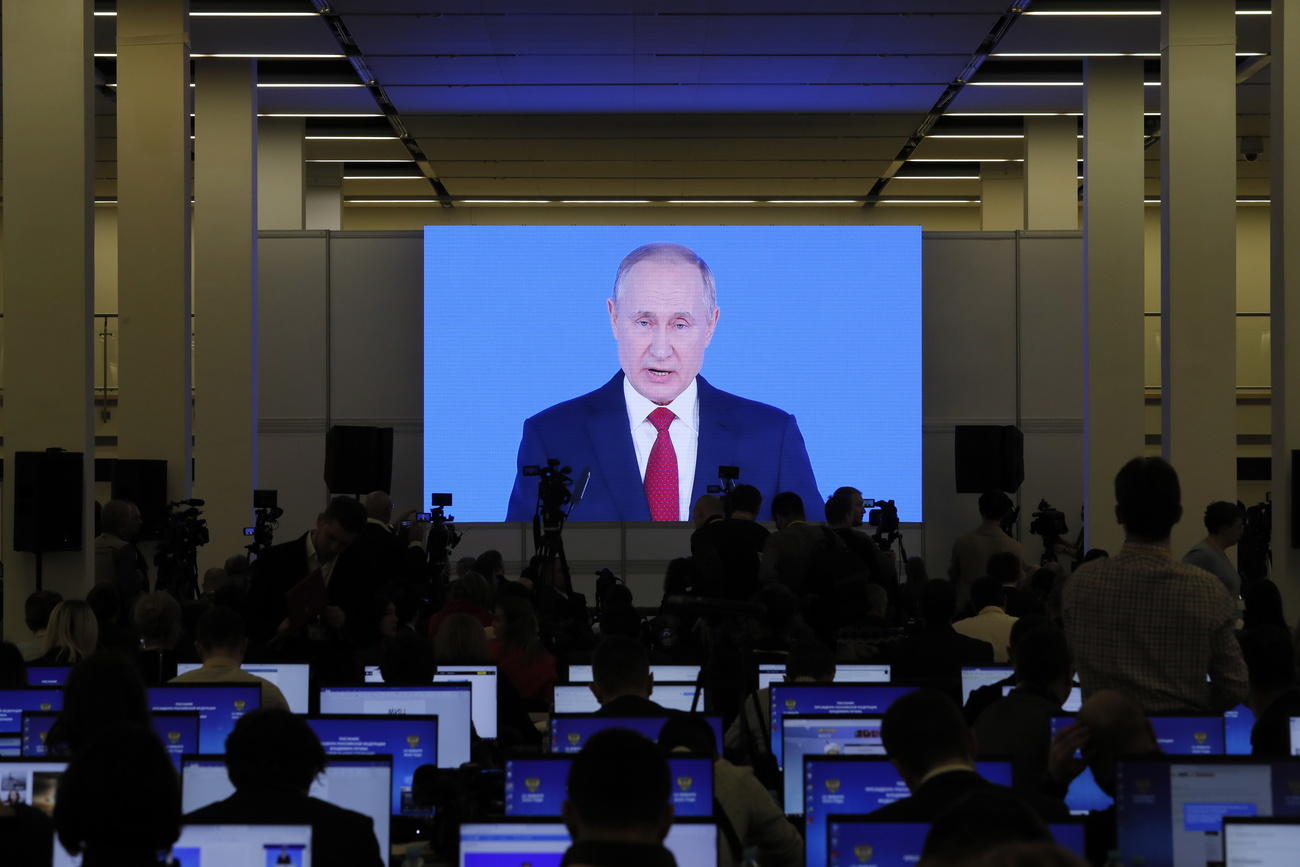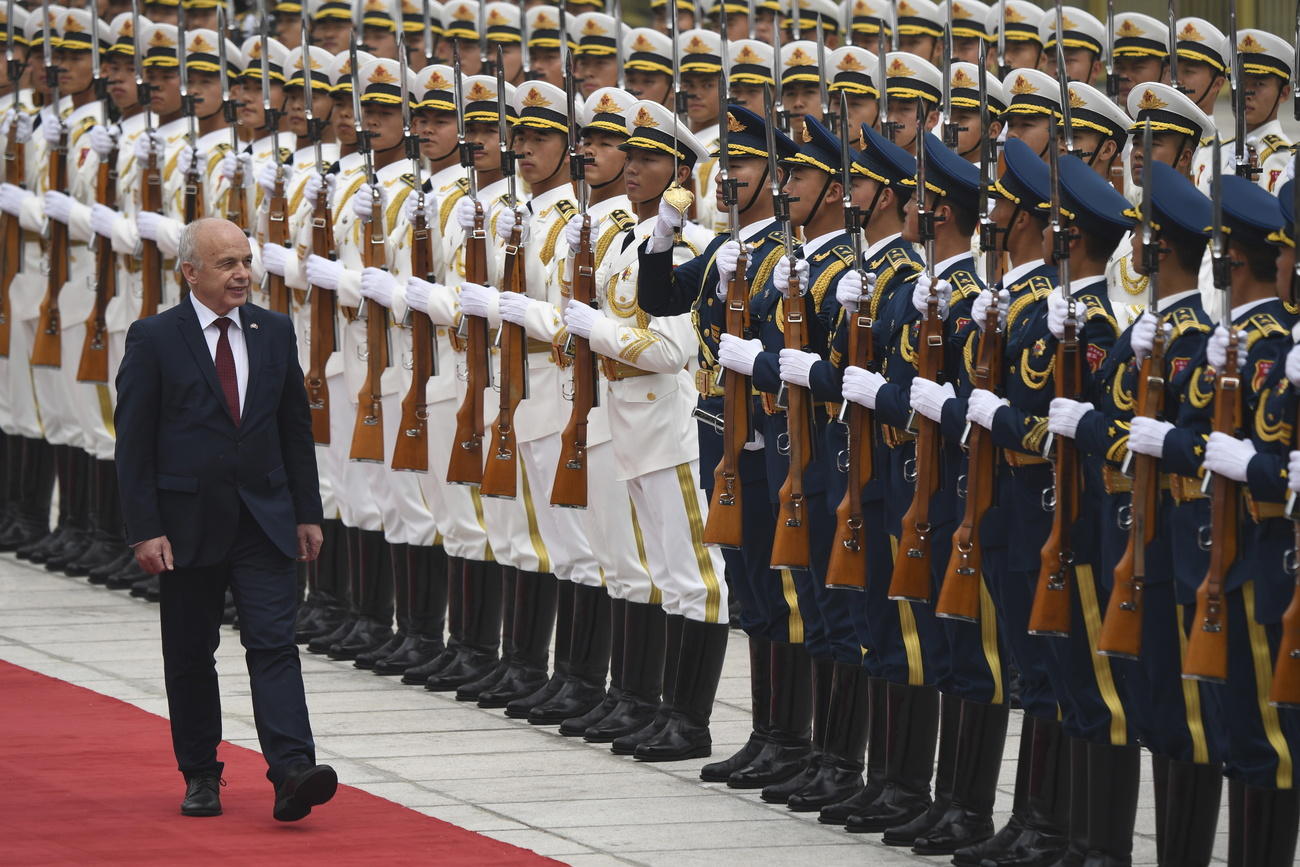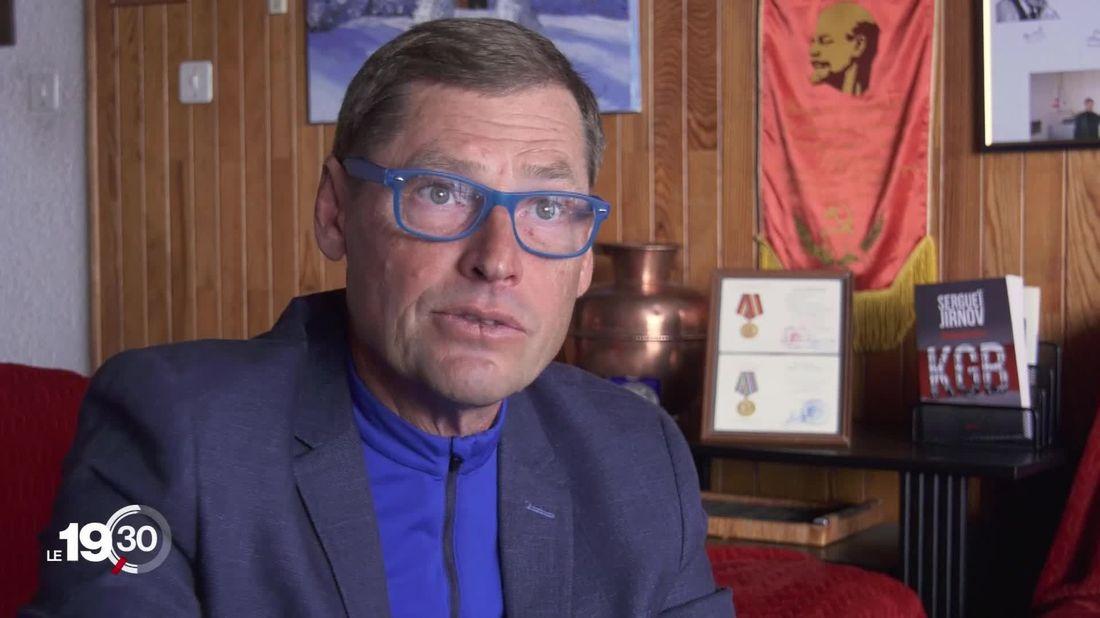Putin risks ‘political fossilisation’, say Swiss papers

A day after Russian President Vladimir Putin proposed constitutional changes to extend his grip on power, Swiss newspapers reckon that whatever role Putin ends up taking, Russians on the street are unlikely to enjoy more democracy.
“On the surface, the constitutional change could be a step towards more democracy. However, it’s unlikely,” wrote the Tages-AnzeigerExternal link in Zurich.
“Democratic mechanisms have been systematically dismantled under Putin’s rule: society, political parties or political institutions are not geared towards pluralism. The fact that the Kremlin leader now divides his absolute power among several instances could be due to the influence of the various power cliques, whose interests he has so far always skilfully balanced.”
On Wednesday Putin, 67, proposed constitutional changes that would give him scope to extend his grip on power after leaving the presidency. He also picked a new prime minister – Mikhail Mishustin, the head of the Federal Tax Service with almost no political profile – after Dmitry Medvedev and his cabinet stepped down.
Most importantly, Putin suggested diminishing the powers of the presidency and beefing up those of the prime minister.
“Putin is taking a big risk with the constitutional change, because it will weaken him and all of Russia. Although confidence in the president has fallen significantly in recent years, it remains high and forms the backbone of his state,” the Tages-Anzeiger wrote.
“The question remains open as to what role Putin will allot to himself. Does he want to take over the office of the powerful prime minister in four years? He has already done that once. It didn’t go down well with the public and led to mass demonstrations. Putin is not a man who makes the same mistake twice. The last word on changing the guard has therefore probably not yet been spoken.”
‘Political fossilisation’
The dramatic moves on Wednesday were widely seen as preparing the ground for 2024, when Putin is obliged to leave the presidency after occupying the Kremlin or the prime minister’s job continuously since 1999.
“This chess move shows that the Kremlin leadership, which has become nervous because of last summer’s protests, can’t completely ignore public opinion,” wrote the Neue Zürcher Zeitung (NZZ) in an editorialExternal link.
“This also applies to Putin personally, who, despite remaining firmly in the saddle, is less able to score points with his aggressive foreign policy today than he did during the euphoria over the ‘returning home’ of the Crimea,” it said.
“The prospect of succession squabbles with an uncertain outcome terrifies those in charge, who don’t want to put their fate in the hands of the public,” the NZZ said.
Putin’s proposals, which he suggested should be put to a referendum, would give him the option of taking an enhanced role as prime minister after 2024 or a new role as head of the State Council, an official body he said he was keen to build up. He could even become speaker of a new, supercharged parliament.
“Many citizens still see in Putin the embodiment of a strong Russia,” the NZZ said. “But if the now initiated constitutional reforms turn out to be simply an operation to keep power, against the background of economic misery, growing repression and international isolation, he risks becoming a completely different symbol: an aging symbol of stagnation and political fossilisation.”

More
Swiss president continues on his ‘autocrat world tour 2019’

In compliance with the JTI standards
More: SWI swissinfo.ch certified by the Journalism Trust Initiative













You can find an overview of ongoing debates with our journalists here . Please join us!
If you want to start a conversation about a topic raised in this article or want to report factual errors, email us at english@swissinfo.ch.